PHILOSOPHICAL TEMPERAMENTS
INSURRECTIONS: CRITICAL STUDIES IN RELIGION, POLITICS, AND CULTURE
INSURRECTIONS: CRITICAL STUDIES IN RELIGION, POLITICS, AND CULTURE
Slavoj iek, Clayton Crockett, Creston Davis, Jeffrey W. Robbins, Editors
The intersection of religion, politics, and culture is one of the most discussed areas in theory today. It also has the deepest and most wide-ranging impact on the world. Insurrections: Critical Studies in Religion, Politics, and Culture will bring the tools of philosophy and critical theory to the political implications of the religious turn. The series will address a range of religious traditions and political viewpoints in the United States, Europe, and other parts of the world. Without advocating any specific religious or theological stance, the series aims nonetheless to be faithful to the radical emancipatory potential of religion.
After the Death of God, John D. Caputo and Gianni Vattimo, edited by Jeffrey W. Robbins
The Politics of Postsecular Religion: Mourning Secular Futures, Ananda Abeysekara
Nietzsche and Levinas:After the Death of a Certain God, edited by Jill Stauffer and Bettina Bergo
Strange Wonder: The Closure of Metaphysics and the Opening of Awe, Mary-Jane Rubenstein
Religion and the Specter of the West: Sikhism, India, Postcoloniality, and the Politics of Translation, Arvind Mandair
Plasticity at the Dusk of Writing: Dialectic, Destruction, Deconstruction, Catherine Malabou
Anatheism: Returning to God After God, Richard Kearney
Rage and Time: A Psychopolitical Investigation, Peter Sloterdijk
Radical Political Theology: Religion and Politics After Liberalism, Clayton Crockett
Radical Democracy and Political Theology, Jeffrey W. Robbins
Hegel and the Infinite: Religion, Politics, and Dialectic, edited by Slavoj iek, Clayton Crockett, and Creston Davis
What Does a Jew Want? On Binationalism and Other Specters, Udi Aloni
A Radical Philosophy of Saint Paul, Stanislas Breton, edited by Ward Blanton, translated by Joseph N. Ballan
Hermeneutic Communism: From Heidegger to Marx, Gianni Vattimo and Santiago Zabala
Deleuze Beyond Badiou: Ontology, Multiplicity, and Event, Clayton Crockett
Self and Emotional Life: Merging Philosophy, Psychoanalysis, and Neuroscience, Adrian Johnston and Catherine Malabou
The Incident at Antioch: A Tragedy in Three Acts / LIncident dAntioche: Tragdie en trois actes, Alain Badiou, translated by Susan Spitzer
PETER SLOTERDIJK
TRANSLATED BY THOMAS DUNLAP / FOREWORD BY CRESTON DAVIS
PHILOSOPHICAL TEMPERAMENTS
FROM PLATO TO FOUCAULT
COLUMBIA UNIVERSITY PRESS

NEW YORK
COLUMBIA UNIVERSITY PRESS
Publishers Since 1893
New York Chichester, West Sussex
cup.columbia.edu
The translation of this work was supported by a grant from the Goethe-Institut, which is funded by the German Ministry of Foreign Affairs.
English translation copyright 2013 Columbia University Press
Philosophische Temperamente. Von Platon bis Foucault by Peter Sloterdijk 2009 by Diedrichs Verlag, a division of Verlagsgruppe Random House GmbH, Mnchen, Germany
All rights reserved
E-ISBN 978-0-231-52740-8
Library of Congress Cataloging-in-Publication Data
Sloterdijk, Peter, 1947
[Philosophische Temperamente, English]
Philosophical temperaments : from Plato to Foucault / Peter Sloterdijk ; translated by Thomas Dunlap ; foreword by Creston Davis.
p. cm.(Insurrections)
Includes bibliographical references and index.
ISBN 978-0-231-15372-0 (cloth : alk. paper)ISBN 978-0-231-15373-7 (pbk. : alk. paper)ISBN 978-0-231-52740-8 (e-book)
1. PhilosophersBiography. 2. PhilosophyIntroductions. I. Title.
B104.S57 2013
190dc23 2012037921
A Columbia University Press E-book.
CUP would be pleased to hear about your reading experience with this e-book at .
COVER DESIGN: CHANG JAE LEE
COVER IMAGE: GALLERYSTOCK AKIRA SAKAMOTO
CONTENTS
Sloterdijks Work and Impact
Peter Sloterdijk has the most provocative and daring temperament of theorists writing in the world today. With his ever expansive subject matter, Sloterdijks unblinking bravado and dazzling prose keep pushing thinking beyond the pale of static assumptions and into the creation of new worlds. And that is precisely what makes him dangerous: Sloterdijk believes in creating worlds, atmospheres, and ecologies beyond our assumed world.
The world for Sloterdijk is not a self-contained, solitary, mysterious oyster; but rather, worlds pluralize and are uncontainable like a sponge with infinite connectors and thresholds.
What makes Sloterdijks work so controversial is that for him we have all become like Scrooge, assuming that the material and theoretical world is the only horizon from which existence takes its meaning. But what if there were worlds instead? If there are worlds, as Sloterdijk suggests, then there are different existential possibilities, that is to say, difference itself becomes the unity into which life draws its breath. This is revolutionary and radically breaks with the history of philosophy (with and against Heidegger) precisely through Sloterdijks return to the marginalized schools of ancient Greek thought. By decentering a singular world (as the ontological given), Sloterdijks philosophy becomes nothing short of a Copernican Revolution for the twenty-first-century theory.
Sloterdijka Brief Biography
Born just after World War II in Karlsruhe, Germany, Sloterdijk is widely considered to be the foremost public intellectual in Europe. As an undergraduate, he studied philosophy, literature, and history at the University of Munich, and received his doctorate in German literature from the University of Hamburg in 1975. After completing his doctorate he went to India to study under an internationally renowned mystic and spiritual guru, Bhagwan Shree Rajneesh (Osho). Much of Sloterdijks work remains indebted to Oshos teachings, which are themselves largely indebted to many religious and theoretical influences, including Hinduism, Buddhism, Christianity, and psychoanalysis. One of Oshos central pedagogical techniques was the employment of paradox and contradiction as a means by which to help individuals transcend and transform their mental and spiritual capacities. Entering into paradox was a way to move beyond the safe distance to intellectual critique and into the fullness of living itself reminiscent of two figures that bookend the Western philosophical tradition: Heraclitus and Nietzsche. Sloterdijks journey to India gave him the creative power to live with the ambiguity of existences synthetic, differential unfolding.
Being familiar with the ambivalence and radical contingency of lifes flux from Osho and from his own fully independent studies, Sloterdijk began to map out a writing career that changed the very coordinates of philosophical theory. From the germs embedded in his first thesis and best-selling work, Critique of Cynical Reason, Sloterdijk can be fairly called the first postsecular thinker in the Westa thinker of a life after God and its twin, nihilism.
Sloterdijks philosophical work can best be identified in three stages: the early period starting in the mid-1980s (with Critique of Cynical Reason); the middle period from the late 1990s through 2004 (with the

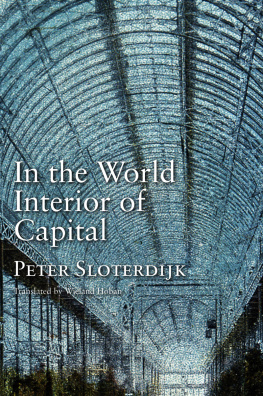
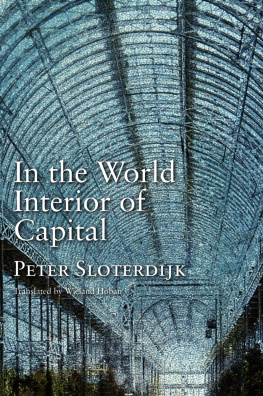
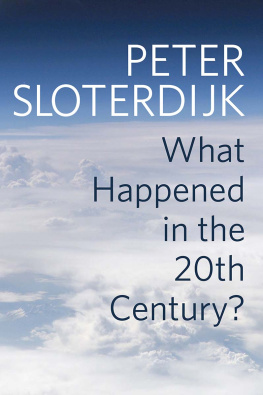
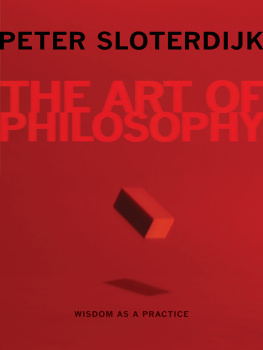
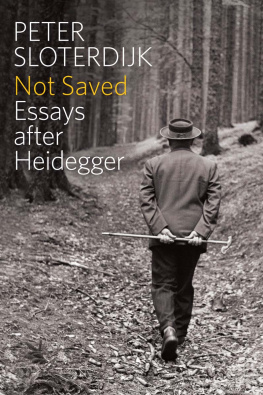
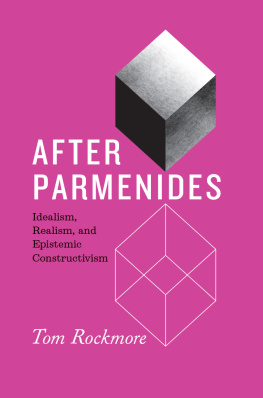
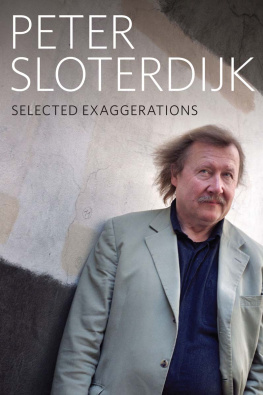
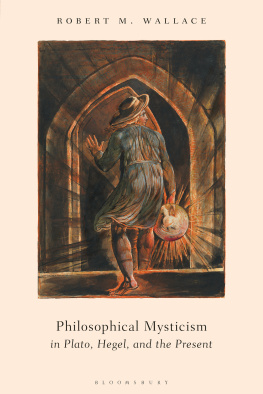

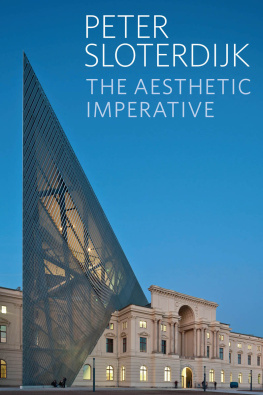
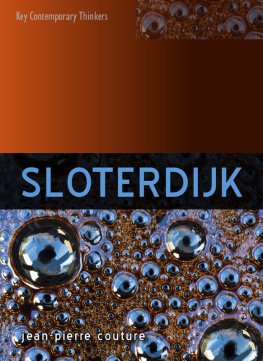
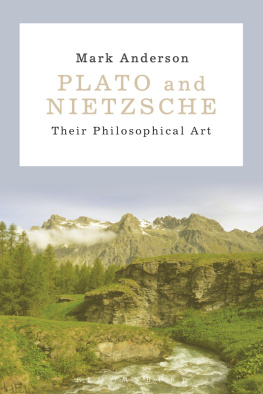

 NEW YORK
NEW YORK